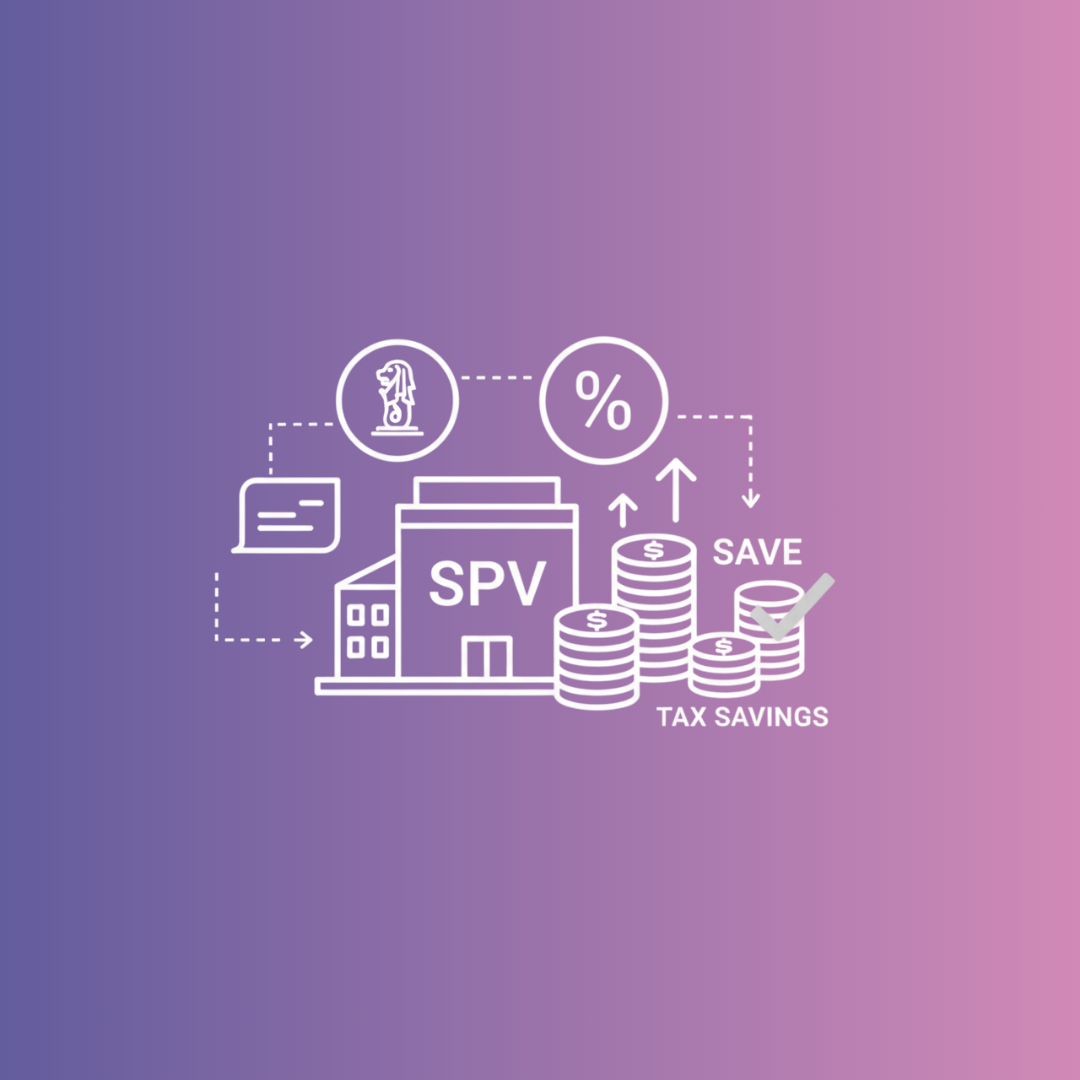Singapore has become one of the most attractive jurisdictions for structuring investments, primarily through the use of Special Purpose Vehicles (SPVs). For global investors, the draw goes beyond reputation. The real value lies in Singapore SPV’s tax efficiency.
In this article, we examine how Singapore SPVs offer tax efficiency for global investors, highlighting their advantages, comparing them with those of other jurisdictions, and analyzing the practical considerations that influence real-world outcomes.
What Global Investors Need to Know About Singapore SPVs
A Special Purpose Vehicle (SPV) is a legal entity created to make a single investment. Instead of raising a full investment fund, an investor or a small group of backers can pool capital into an SPV to participate in one specific deal, most often a startup.
The structure keeps the investment ring-fenced, clean, and easier to manage over time. In Singapore, SPVs are commonly Private Limited Companies (Pte. Ltd.) used by VCs, angel syndicates, family offices, and co-investors to isolate risk, streamline exits, and handle repatriation. Transparent governance, documented commercial purpose, and sensible holding periods help preserve tax advantages.
Where a holding company serves a long-term, multi-asset purpose, an SPV exists to handle one deal at a time. The draw for global investors is the ability to achieve a tax-efficient structure in a stable, well-regulated jurisdiction with access to international treaties and agreements.
What makes Singapore SPV tax efficiency real
No capital gains tax (the clean exit)
One of the most attractive features of Singapore SPVs is capital-gain neutrality. Singapore does not tax capital gains. This is the single clearest driver of Singapore SPV tax efficiency for many angel syndicates, VCs and family offices, allowing them to realize exits through an SPV without adding another tax layer locally.
Treaty reach and lower withholding
A strong DTA (Double Taxation Agreement) footprint is another reason behind the tax efficiency of Singapore SPVs. According to the IRAS (Inland Revenue Authority of Singapore), Singapore currently has 98 comprehensive DTAs in force, plus several limited DTAs.
This broad network reduces withholding rates on dividends, interest, and royalties, making it easier for investors to move capital across borders without unnecessary leakage.
Dividends and the one-tier system
Singapore operates a one-tier corporate tax system. Dividends distributed by a Singapore tax resident company are not subject to additional tax locally. That means investors receive clean distributions, simplifying the repatriation process.
Competitive headline corporate rate and reliefs for new companies
Singapore’s headline corporate tax rate is 17%, with partial exemptions and reliefs that can lower effective rates on early profits, available to newly incorporated businesses—a tidy complement to capital-gain neutrality.
Fund tax incentives for larger vehicles
For institutional funds and qualifying family offices, Sections 13O/13U (and related schemes) can deliver tax neutrality on specified income, a powerful lever for fund managers using Singapore SPVs inside fund structures and part of Singapore’s broader investment fund taxation framework.
Global investors are already leveraging Singapore SPVs for tax-efficient deal structuring and smoother exits. Talk to our expert to see how your next investment could benefit.
How Singapore Compares to Other SPV Jurisdictions
Choosing the right jurisdiction doesn’t just rely on tax rates; investors should consider credibility, treaty access, and how investors perceive the structure. Cayman, Delaware, and Luxembourg all have their niches, but Singapore has carved out a sweet spot for both Asia-focused capital and global funds.
Here’s how it stacks up:
|
Jurisdiction |
Tax Treatment |
Treaty Network |
Cost & Complexity |
Best For |
|
Singapore |
No capital gains tax; dividends exempt; 17% corporate tax with reliefs; strong fund incentives |
90+ DTAs covering US, China, India, Europe |
Moderate; strong governance standards |
Asia-focused investors, family offices, global syndicates |
|
Cayman Islands |
No direct taxes (income, capital gains, corporate) |
No meaningful treaty network |
Low compliance cost, but OECD scrutiny on substance |
Offshore PE/VC funds not relying on treaties |
|
Delaware (US) |
Corporate tax applies (though structuring can minimize) |
No treaties for non-US investors |
Low setup cost; complex tax for cross-border |
US domestic deals, US LPs |
|
Luxembourg |
Capital gains may apply; strong exemptions via participation rules |
Extensive EU & global treaty network |
Higher costs, more complexity |
European funds, institutional investors |
Practical Considerations for Global Investors
Documentation that matters
For global investors, strong documentation is what keeps Singapore SPVs credible and tax-efficient. Incorporation papers, shareholder agreements, board minutes, audited accounts, and a clear investment timeline demonstrate commercial substance. When these records are in place, investors can rely on the SPV’s classification for capital gains treatment and smoother cross-border recognition.
Substance expectations
Singapore’s regulators expect SPVs to operate like genuine companies. For global investors, this means choosing a structure that appoints local directors, holds proper board meetings, and makes commercially sound decisions within Singapore. These elements protect the SPV’s tax advantages, ensuring that the efficiency promised on paper translates into real-world results.
Final Thoughts
For global investors, Singapore SPV tax efficiency is real with no capital gains tax, broad DTA coverage, dividend exemption, and fund incentives that combine to make SPVs attractive for exits, holding structures, and Asia-facing plays. The catch is structure and substance: keep your SPV’s activities aligned with capital treatment and document commercial purpose.
Ready to structure a tax-efficient SPV in Singapore? Book a call with us or contact us at info@auptimate.com, and one of our experts will be happy to assist you.



